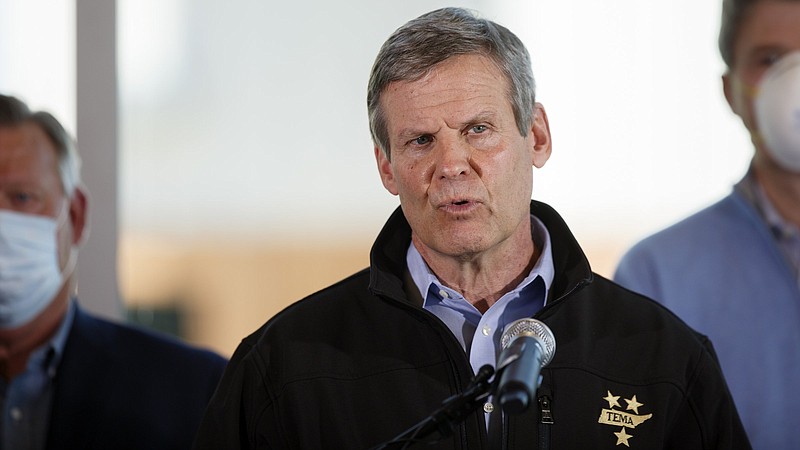Senate Minority Leader Chuck Schumer, D-New York, fretted over Monday's reconvening of the United States Senate because of what he said was the inability to test all 100 of its members for the COVID-19 virus.
That struck us as odd, especially for the senator, whose home state has been at the epicenter of the virus outbreak with 985,911 cases and 3,438 deaths. On recess back in the Empire State, he - as well as his colleagues in their states - surely could have found some way to be tested.
Plus, with the federal government having given billions of dollars to the individual states to facilitate testing, Schumer might have reaped what he and others in Congress have sown.
Meanwhile, the state of Tennessee could have told the senator, "Hold my beer." After all, the Volunteer State is 16th in population of the 50 states but 11th in number of tests (positive and negative) administered, according to the COVID-19 Tracking Project. And it is only 19th in positive cases, which, given the number of cases administered, is encouraging.
Gov. Bill Lee, according to interim press secretary Gillum Ferguson, had looked at other countries early in the timeline of the virus and perceived the need for rigorous testing. Tennessee, he said, became one of the first five states to test.
He said the partnerships the state entered into with Vanderbilt University Medical Center, the University of Tennessee Health System and private labs then enabled wider testing. They increased the state's ability to test, and the state's investment in the public and private entities in turn increased its capacity for testing.
"It's been a symbiotic partnership," Ferguson said.
He said the governor's creation of the Unified-Command Group, combining the Tennessee National Guard, the Tennessee Emergency Management Agency and the Tennessee Health Department also had been instrumental in taking testing statewide and in being able to move needed testing supplies and personal protective equipment from one place to the other.
Few other states have done anything similar, Ferguson said, "It's part of the governor's perspective of thinking outside of the box, where other states are sort of boxed in."
The Tennessee Department of Health announced on April 13 it would no longer require pre-screening but would offer free screenings at any of its health departments, drive-in or drive-through locations. Then, on Friday, Lee announced his administration would test every Tennessee Department of Corrections prison inmate and every staff member.
"We believe that we are the first state in the country to take this action," he said.
Over the weekend, the state Department of Health offered 16 drive-through virus testing events across the state, and now more than 23,000 Tennesseans have received a free test at one of 67 drive-through sites over the last three weekends.
Residents of Hamilton County, which has lagged behind the state in testing per capita, no longer have an excuse for not being tested, especially if they have symptoms. But symptoms or no symptoms, each completed test gives the county, the state and the nation a more accurate look at who has the virus, who has recovered from the virus and who never had it.
Hamilton County is the state's fourth most populous county, but it ranks only 12th in the number of positive cases. While we would like to believe that could be attributed to the good health of our citizens, we don't believe that is the case.
Public health experts say without robust testing, they will be unable to detect outbreaks quickly enough to contain them, perhaps leading to further shutdown orders, which are just beginning to be relaxed in various states across the country.
Although no federal benchmarks have been given as to just exactly how robust testing might be measured, a senior White House briefing said the federal government would provide each state with enough tests, swabs and related materials to screen at least 2.6% of its population in May and June.
Tennessee, with a population of approximately 6,829,000, already has screened 204,607 individuals, or almost 3%. New York has screened more than 11.5% of its population, but Kentucky has screened less than 1.2% of its population and Kansas less than 1.3% of its inhabitants.
An Associated Press analysis determined that about 40% of states, or 20 states, have reached a threshold of 2% in testing. Georgia, one of the states that led the way in reopening parts of its economy, has hit just under the 2% threshold.
The ability to test widely has been one of the determining factors that public health experts say states should use in figuring out when and how to begin reopening their economies.
Fortunately, Lee and Tennessee put testing at the forefront. Schumer and his colleagues might learn a little from the state.
